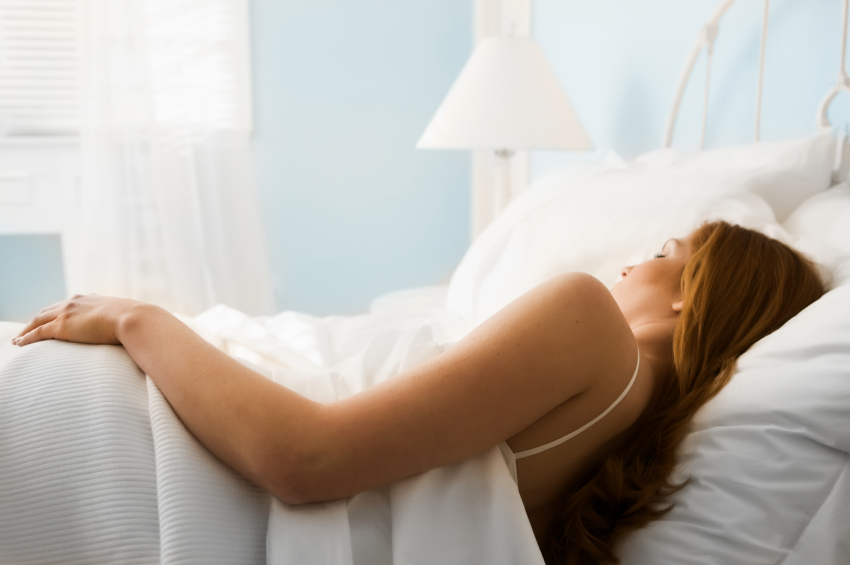If you have recently had night sweats for the first time during menstruation, the experience can be rather distressing. But fear not for you are not alone, as many women experience this. Effective management will be key in helping you navigate through this tough time. This article will detail why they occur, and how you can manage them when they do.
Why Do I Get Night Sweats During Period?
Night sweats are known medically as nocturnal hyperhidrosis, wherein the heat regulatory area of the brain (hypothalamus) malfunctions, leading to profuse sweating, which may require you to change your sheets due to the sheer quantity of sweat. During menstruation, many hormones fluctuate which can cause a malfunction of the hypothalamus, leading to night sweats. This is because the hypothalamus registers an erroneous increase in body temperature, and the pores dilate in order to sweat and release/reduce the body’s temperature, even though such profuse sweating is not necessary.
Other Causes
 Whilst hormones are the most common cause of night sweats during menstruation, there are other conditions which may cause this occurrence. Anxiety, diabetes, neurological conditions, thyroid disorder, sleep apnea, and cancer can all be attributed to causing night sweats during period.
Whilst hormones are the most common cause of night sweats during menstruation, there are other conditions which may cause this occurrence. Anxiety, diabetes, neurological conditions, thyroid disorder, sleep apnea, and cancer can all be attributed to causing night sweats during period.
Night Sweats During Period: Am I Experiencing Perimenopause?
This could be the case. It is true that numerous women in their 40s and 50s begin to experience night sweats. This can happen anywhere from three to ten years before actual menopause takes place. This is not true for all women, however, as factors like race can play a part in determining whether a women will develop night sweats during perimenopause. To determine whether the night sweating is an indication, or a precursor of menopause, you must ascertain other symptoms of perimenopause.
Other Symptoms of Perimenopause
- Vaginal dryness: During the later stages of perimenopause, changes in your body’s hormones may lead to dryness of the tissue in the vaginal area. This will likely exacerbate after menopause, and can lead to irritation and itching. It may also lead you to experience pain when partaking in sexual relations, which may dramatically lower your libido.
- Uterine bleeding problems: As your body goes through hormonal changes, progesterone levels decrease. This hormone is responsible for regulating the growth of the endometrium, meaning a depletion of this hormone may cause the uterine lining to become extremely thick during menstruation, leading to a heavy flow.
- Sleep disturbance: This can sometimes be related to night sweats interrupting one’s natural sleep, although many women who do not have night sweats also experience sleeping problems during perimenopause.
- Mood symptoms: Although not all women will experience a change in mood during perimenopause, some studies suggest around ten to twenty percent of women develop mood related symptoms. Although some may suggest that depleted estrogen may lead to depression at this time, there is no scientific proof to back this claim. Although anxiety should not be a result of perimenopause, some women may be irritable at this time due to stress and hormonal changes.
How to Cope With Night Sweats During Period
As the conditions are highly common, many strategies have been devised to help those experiencing this occurrence to deal with it. Some methods to help you cope at this time include:
1. Changes in Diet
Eating a healthy, balanced diet containing healthy fats, vegetables rich in antioxidants, and lean protein, can help to ensure proper hormonal regulation and help to avoid the occurrence of night sweats during menstruation.
2. Exercise Regularly
Exercise can be beneficial in honing your body’s ability at regulating its own temperature. That being said, exercising anywhere up to two hours before you go to bed may actually increase the chances of experiencing night sweats, so it’s best to get your exercise out of the way early in the day.
3. Apply Herbal Remedies
Some herbal remedies are thought to help with the regulation of hormones, such as ginseng, black cohosh and dong quai. This should only be carried out on a short-term basis, however, never taken for an overly extended period of time.
4. Wear Cool, Loose Fitting Pajamas
Opt for pajamas made with linen or cotton, as these fabrics will allow more release of heat than other fabrics like spandex or satin.
Tips to Avoid Night Sweats
Along with the tips mentioned above to help you cope with and reduce night sweats, there are other steps you can take to lessen the severity and the frequency of night sweats during period. Some of these steps include:
- Drink plenty of water: Ensuring to remain sufficiently hydrated will not only provide you with nourishment and hydration, it can also help your body to regulate its temperature.
- Avoid drinking too much caffeine: Reducing your caffeine intake can benefit your sympathetic nervous system, which will help to prevent it from instigating the occurrence of night sweats.
- Have a warm bath or shower: This can help to not only relax you but to also cool your body. Having a lukewarm shower or bath before bed can help your body to avoid overheating.
- Try yoga: Yoga can be great at relieving stress. Practicing this exercise efficiently can also help with the regulation of hormones within the body.
